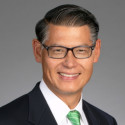The American College of Radiology (ACR) held its 2021 Annual Meeting virtually for the second (and hopefully last) time from May 15–19, 2021. The ACR’s membership is composed of diagnostic radiologists, radiation oncologists (RO), nuclear medicine radiologists, and interventional radiologists.
Its Annual Meeting unites all the radiological specialties. Although there are educational sessions, the bulk of the meeting was focused on healthcare advocacy, economics, and governance.
Within the ACR are 54 chapters, representing each state radiological society in the United States, the District of Columbia, Puerto Rico, Canada, and the Council of Affiliated Regional Radiation Oncology Societies (CARROS). At the Annual Meeting, each of these chapters sends representatives to the ACR Council, which is the 373-member legislative body of the College that provides a voice to each ACR member through their chapters and governs the College as it establishes policy for all of radiology. For example, as ROs, we are members of the CARROS chapter.
Due to the virtual format, this year, chapters held their caucus meetings a week before the actual meeting, on May 8, instead of the usual Sunday morning, the official start of the meeting. Join Luh, MD (president), Alan Hartford, MD (president-elect), Simon Lo, MD (immediate past president), Iris Gibbs, MD (secretary), Nancy Ellerbroek, MD (past president and CARROS nominating committee chair), Naomi Schechter, MD, and Candice Johnstone, MD gave updates on membership, outreach, fellowship recipients, practice parameters, potential future fellowship nominees, and the American Association of Women Radiologists. At the top of this list, CARROS was humbled and proud to receive a chapter recognition award from the ACR in the membership category for the third year in a row.
Abhishek Solanki, MD, CARROS’s representative to the ACR Council, provided a summary of all 49 resolutions to the CARROS membership. Similar to my earlier meeting in the Western States Caucus (including CRS) with Johnson Lightfoote, MD, as chair, the hottest resolution discussed at CARROS was one introduced by the Resident & Fellows Section (RFS) — which sought guaranteed family leave for residents in the radiology specialties (including RO) without affecting the length of training and ability to sit for the American Board of certification exam. There was enthusiastic support for this concept within CARROS, but there was also much discussion on how best to word the resolution. CARROS actively supported this resolution.
Saturday morning, May 15, kicked off with an RO education symposium “Establishing evidenced-based indications for proton beam therapy: Have we made any progress?” Timothy Showalter, MD, and Keith R. Unger, MD were the featured speakers moderated by Mark V. Mishra, MD. Despite the excellent physical properties of protons, the speakers pointed out certain surprising adverse effects of proton therapy, showing that, in some situations, proton therapy may not be superior to photon therapy. This was followed by a chapter leaders workshop featuring a talk by Frank Lexa, MD, on the corporatization of medicine, and David Youmans, MD, on the importance of advocacy and engaging with lawmakers. Concurrent to the workshop was the Young Physicians Section Meeting, featuring Trevor Royce, MD, MPH, of the American Society for Radiation Oncology (ASTRO) Workforce Subcommittee, jointly with Frank Lexa, MD, discussing future labor-force shocks in radiology and RO.
The ACR’s Commission on Radiation Oncology met Sunday, May 16 at 7 a.m. Pacific time with updates on the Radiation Oncology Practice Accreditation (ROPA) program, NRG Oncology and IROC research operations (that notably receive financial support from the ACR), practice parameters, and economics. Dr. Edina Wang, the outgoing RFS RO representative, and Dr. Zach Morris, Young Physician Section RO representative, gave updates on issues affecting their groups, and Dr. Aaron Bush was announced as the newly elected RFS representative for RO. At 10 a.m., the ACR Council Meeting’s opening session kicked off, moderated by Richard Duszak MD, Council Speaker. At 11:30 a.m., online elections were held for ACR’s leadership positions, and Beverly G. Coleman MD was elected as the first Black female president of ACR.
At the virtual ACR Convocation Sunday afternoon, several radiation oncologists were inducted into ACR Fellowship: Drs. Georges Hatoum, Ariel Hirsch, Candice Johnstone, Join Luh, John Mignano, Afshin Safa, Craig Stevens, and Michael Yunes. Dr. Michael Baumann, an RO, Chair and CEO of the German Cancer Research Center, and editor-in-chief of Radiotherapy and Oncology, was awarded an Honorary Fellowship in the ACR. A moving tribute to all 156 newly inducted fellows concluded the convocation. Pre-COVID-19, a reception would have followed the convocation, and CARROS would have hosted a celebratory dinner honoring all new radiation oncology fellows.
On Monday, May 17, the morning started with part one of the series "Leading the Way to Health Equity," in which Dr. Iris Gibbs, the radiation oncologist at Stanford University and CARROS secretary, discussed how systemic racism leads to health disparities. The Council meeting then commenced. As Councilor and Alternate Councilor, respectively, Drs. Abhishek Solanki and Najeeb Mohideen represented CARROS to the ACR's Council sessions, attended by all the ACR’s state and specialty chapters. The 2021 Moreton Lecture then was delivered by Dr. Reshma Jagsi, Professor and Deputy Chair of Radiation Oncology at the University of Michigan, who has written and researched extensively on gender and racial bias. She discussed the numerous systemic and cultural paradigms that keep women from achieving leadership positions and competitive research support. The day concluded with additional debate and discussions of resolutions.
On Tuesday, May 18, the morning started with part two of the series, “Leading the Way to Health Equity,” moderated by Dr. Geraldine McGinty, the outgoing ACR President. The council meeting then continued, and was followed by a panel on imaging economics, featuring Dr. Lauren Golding, ACR RUC Advisor, and ACR MACRA Committee Chair, as one of the speakers. The day concluded with further Council meetings, including reference committee reports and final votes. The resolution supporting resident leave time received overwhelming support and passed. The Council closed with Dr. Richard Duszak handing the reins of Council Speaker to Dr. Amy Kotsenas.
Wednesday, May 19, marked Capitol Hill Day, when ACR members had the opportunity to meet with elected members of Congress in the House of Representatives and Senate. Due to COVID-19, these visits were conducted virtually instead of their traditional in-person venues. Those who attended the Hill activities came away with a better appreciation of the ACR's important advocacy activities beyond research and education.






